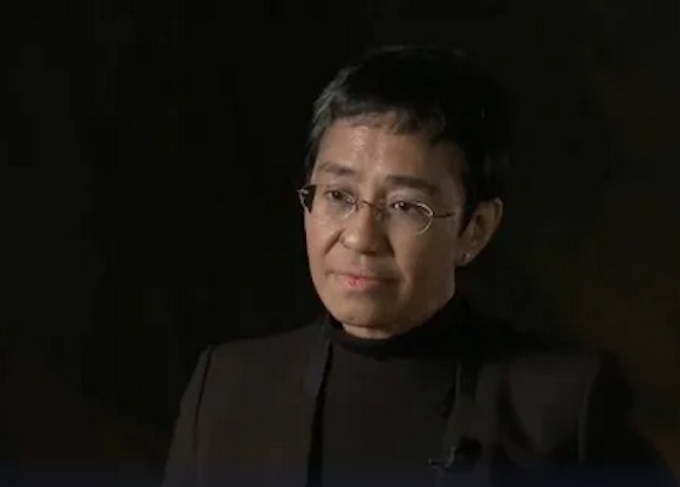
By Bea Cupin in Manila
Journalist and publisher Maria Ressa has called on tech and social media giants to practise “enlightened self-interest” amid a global call for platforms to step up in the fight against disinformation.
“The world that you’ve created has already shown that we must change it. I continue to appeal for enlightened self-interest,” said Ressa, chief executive and founder of Rappler, in an online lecture for the Facebook and the Big Lie series.
Ressa, a veteran journalist and Nobel Peace laureate who will be receiving the award this Friday, has been studying, reporting on, and sounding the alarm against the use of social media platforms as a means to spread lies and hate.
The Rappler boss herself has been the subject of harassment online and of legal cases against her in the Philippines.
Platforms like Facebook, said Ressa, give the same weight on posts, whether it is a lie or a fact, in a bid to increase user engagement.
While it has meant more revenue for the platforms, it also means that posts that spark emotion — whether or not they are based on fact — gain the most traction online.
Facebook whistleblower Frances Haugen had earlier revealed that the algorithm for instances, puts weight on “angry” reactions more than regular likes.
‘Moderate the greed’
“In the Philippines, we say ‘moderate the greed.’ [These platforms] are part of our future, that’s why we’re partners,” she explained.
The stakes are even higher in countries like the Philippines, which will be electing a new president in May 2022.
“Why we must fight disinformation. It weakens, and ultimately subverts, democracy, by undermining the factual basis of reality, by denying the standards of truth.”
“We cannot not do anything because we in the Philippines have elections on May 9. If we do not have integrity of facts, we won’t have integrity of elections,” warned Ressa.
Platforms, after all, are anything but clueless and helpless.
Facebook, for instance, put more weight on “news ecosystem quality” or NEQ after employees found that election-related information were spreading on the platform in the days following the US elections in 2021.
The NEQ, according to The New York Times, is a “secret internal ranking it assigns to news publishers based on signals about the quality of their journalism.”
The lies asserted that the elections were rigged and that Donald Trump, then US president, was the true winner.
The ‘big lie’ persists
he “big lie,” as it has since been called, persists to this day.
Ressa said she woud be asking Facebook “behind the scenes and in front,” via Rappler’s partnerships, to turn up the NEQ locally.
Increasing the weight of the NEQ, at least in the US, meant that for a while, mainstream media accounts — The New York Times, CNN, and NPR — were more prominent on the Facebook feed than hyperpartisan pages.
“The foundational problem is that facts and lies are treated equally, which is what has poisoned the information ecosystem,” added Ressa.
Duterte, who won the 2016 elections by a wide margin in a plurality, is among the first national candidates to effectively use social media in a Philippine election.
Social media hasn’t just changed how regular citizens act and candidates campaign, it has also changed sitting leaders’ tactics.
“Leaders in the past that would take over, their first challenge is always how to unite people. Now, with social media because of the incentive schemes, we’re seeing leaders awarded if they divide,” said Ressa.
More manipulation tools
“Illiberal governments have gotten more tools to manipulate people,” she added. Rappler investigations later found that pro-Duterte networks used fake accounts to spread lies and disinformation well into his term as president.
Rappler started out as a Facebook page in mid-2011 and has since grown to be among the leading news sites in the Philippines. The news organisation faces at least seven active pending cases before different courts in the Philippines.
These are on top of online attacks over its reporting on the Duterte administration, including its bloody “war on drugs” and allegations of corruption among the President’s allies.
Ressa and a former researcher were convicted in June 2020 for a cyber libel law that hadn’t even been legislated when the article first came out.
Ressa is the first Filipino individual awardee of the Nobel Peace Prize and is the only woman in this year’s roster of laureates.
Ressa won the Peace Prize alongside Russian journalist Dmitry Muratov.
They won the prize “for their efforts to safeguard freedom of expression, which is a precondition for democracy and lasting peace.”
Republished from Rappler with permission.










































